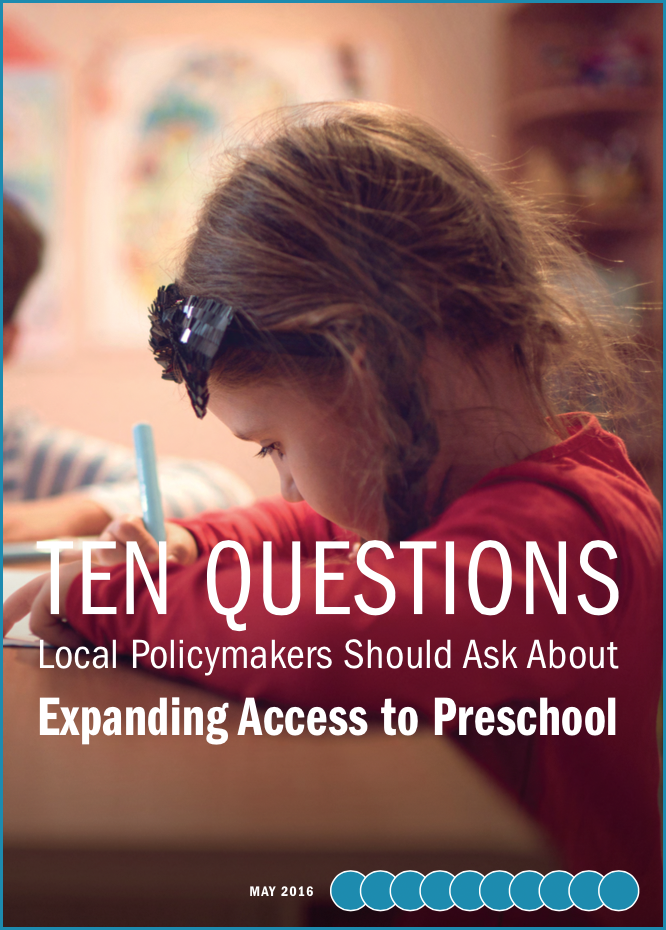Ten Questions Local Policymakers Should Ask About Expanding Access to Preschool
The 10 Series offers policymakers, educators, and the general public accessible, research-based information on pressing education issues.
 High-quality preschool programs can have far reaching benefits for kids, parents, and communities—and they can provide a high return on initial investments, with projected savings of $2-$4 for every $1 invested. Realizing what a good deal preschool can be for everyone, some local preschool champions have opted not to wait for federal or state action and have started investing in expanding access and improving the quality of preschool provided in their communities, in many cases setting a goal for making quality preschool available to all families, regardless of income.
High-quality preschool programs can have far reaching benefits for kids, parents, and communities—and they can provide a high return on initial investments, with projected savings of $2-$4 for every $1 invested. Realizing what a good deal preschool can be for everyone, some local preschool champions have opted not to wait for federal or state action and have started investing in expanding access and improving the quality of preschool provided in their communities, in many cases setting a goal for making quality preschool available to all families, regardless of income.
But scaling up from a model program to citywide or countywide access is difficult. This 10 Series report summarizes our key findings about local preschool initiatives in 10 communities in the United States. The local leaders profiled in our study had to address key issues about the focus, scope, quality components, duration, and rollout of their initiatives. Leaders had to determine an appropriate finance mechanism and develop the political will to secure it.
Based on our examination of these preschool initiatives, we developed 10 questions local policymakers and educators should ask as they consider action on preschool.
- Should preschool be for all, or only for the neediest?
- Should local initiatives focus on four-year-olds, or three- and four-year olds?
- What about teachers’ qualifications and pay, adult-to-child ratios, and other quality factors?
- When should preschools be open?
- How much does preschool cost?
- How do cities pay for preschool?
- How long does it take to serve the target population?
- What settings work best for preschool?
- Who should run preschools?
- How can cities win public support?

